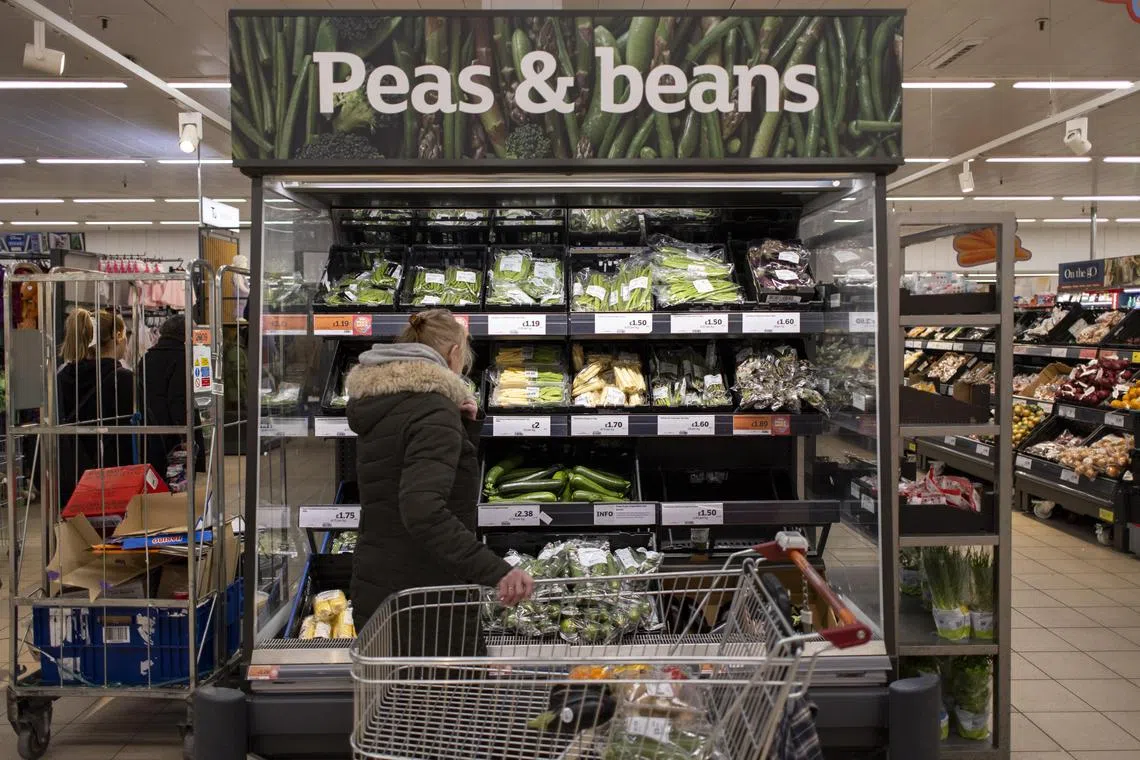Inflation in UK shops hits record high of 8.4% with little relief ahead
Sign up now: Get ST's newsletters delivered to your inbox

Food price increases hit 14.5 per cent, showing that the pressure is highest on essential spending.
PHOTO: EPA-EFE
LONDON - Prices in British stores rose at their highest rate since at least 2005 in February, as the cost-of-living crisis showed little sign of easing for cash-strapped consumers.
The British Retail Consortium (BRC) said shop price inflation accelerated to 8.4 per cent, a record for an index that started in 2005, and an increase from 8 per cent in January. Food price increases hit 14.5 per cent, showing that the pressure is highest on essential spending.
Prices are steadily rising for consumers even as broader measures of inflation are slowing in Britain. Shoppers are visiting budget retailers and buying fewer items to try to ease the rising burden on their wallets. Consumers still have some way to go before inflation in shop prices is expected to reduce in the second half of 2023.
“Retail prices across the board continued to react to the impact of soaring energy bills, higher running costs and tougher trading conditions brought about by the war in Ukraine,” said BRC chief executive Helen Dickinson.
“Prices will remain high over the coming months.”
Gardening tools and pet food were especially impacted by inflation in the past month. Prices for fresh food, especially vegetables, were affected by the weaker pound, making imports from Europe more expensive.
Shoppers have also had to contend with acute shortages of tomatoes, peppers and cucumbers, which have led many supermarkets to impose rations. British supermarket bosses were summoned to meet with the government earlier this week to explain how they will ensure availability.
Two-thirds of households are more concerned about food and drink prices than the public sector strikes
Bank of England governor Andrew Bailey warned British households in February that there was still a “long way to go” before the cost-of-living crunch is brought under control.
More than half of British consumers feel they are in a worse financial position than a year ago, according to Mr Mike Watkins, head of retailer and business insight at NielsenIQ, which produces the data for the BRC.
“Some retailers are having to work even harder to encourage customer spend, including additional price cuts or promotional activity,” said Mr Watkins. “This is likely to continue until consumer confidence starts to improve.” BLOOMBERG


